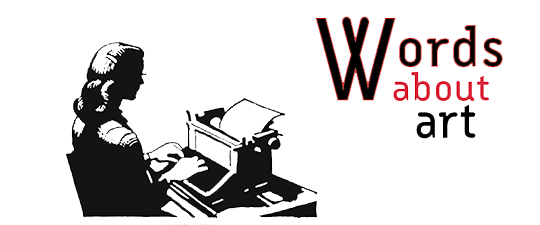The line between truth and fiction: four parables
Last week, reading of Brad Pitt's 'apprenticeship' to Thomas Houseago in the wake of divorce (the implications here are too strange to even contemplate-- heartbreak turns you into an artist? Release from marriage to a crazy person makes art seem like a plausible career choice?-) I thought of a very short fiction I had written. One thing led to another... so I offer you these four brief meditations about art, life, curating, writing, and-- well-- love.
____________________________
“If paintings are windows,” he shouted, “then I’m Brad fucking Pitt.” She flinched, but only because his voice was so painfully loud it seemed as if her eardrums might be damaged for life. She knew she was right. She had never said a word about windows, portals, or anything the like; instead, she had simply stated that she could see space in the mud-colored rectangles, hanging on his studio wall. She could see it now: a world in there, beyond the wood and paint, and she knew he never would. Still, it didn’t really matter. The only thing that did was whether or not collectors would buy them for a satisfying price.
____________________________
I thought you came here to see my work,” she says, arms folded tightly across her tiny chest. I have. But something about those things, curled in various positions on the studio floor, makes me want to tear off all of our clothes. I’m not sure what might happen next—once we are naked. Would we mimic the poses suggested by her pieces, two blobs entwined in a sticky embrace? Or just-- lie there and moan? I know I am not acting in accordance to her expectations of a curator’s cool demeanor. I sigh, and ask for a cup of tea and some kind of chair. It’s time to hear her pitch.
____________________________
The problem with language is that it is made out of words. I can tell you about a person, a place; a smell, a sound, or a quality of light, but my description is just an abstraction of the things I am talking about. Although a word can evoke a feeling (and often does), there is no guarantee that the contents of a powerful phrase: the associations that lie beneath its skin, will be the same for you that they are for me. Unable to enter each other’s minds, we can never be sure that our experience of things truly coincides—that the color of the sky or the taste of rice is the same for us both. All we really know (or think we know) is that what we call rice isn’t what we call blue.
____________________________
We were talking on the telephone, when unexpectedly (offering it as advice well meant) he told me I should “let art go.” Give it up, since nothing new would come out of my hands—only the derivative, limp or coy. Moments later, carefully placing the receiver in its cradle, I remembered with a vague regret how polite and serious I had been, the night I went to see his work. I had liked him, and thus had needed to respect him; yet, surrounded by those blandly agonized figures, I’d imagined his paintings as a school of ugly fish. I imagined them now: hitching a ride on fickle currents, bottom feeders sucking on a flow of refuse, a jumble of dirty bits and scraps drifting down from the lucent surface. As I called up this image in my mind, I could hear him saying, “you should stick to writing.” I wondered if he knew what this could mean.



